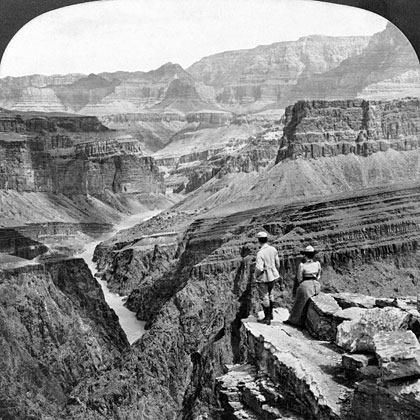John Roberts Attacks the Antiquities Act

Anyone who cares about the public lands should be extremely concerned about John Roberts’ opinion in rejecting a case that sought to overturn the giant marine national monuments created under George W. Bush and Barack Obama. The case lacked any standing. But John Roberts really wants the case to have standing so he can overturn the Antiquities Act or at least severely limit its usage. Mark Joseph Stern highlighted this on Twitter the moment Roberts wrote this and he had a full article on it as well.
The Supreme Court turned away a major challenge to the president’s ability to protect marine ecosystems on Monday, a victory for the environment that comes with a caveat: Chief Justice John Roberts expressed his desire to narrow—really, eviscerate—the executive branch’s power to safeguard large areas of environmentally sensitive lands, especially those underwater, in the future. Roberts’ opinion invites industry groups to challenge the scope of submerged national monuments, and it suggests that, next time around, the chief justice will shrink these critical habitats down to a fraction of their former size. It is an ominous sign for conservationists and a direct attack on one of America’s most important environmental laws.
That law, the Antiquities Act of 1906, empowers presidents to designate land controlled by the federal government as a “national monument,” shielding it from development and destruction. Some monuments, like the Gila and Navajo cliff dwellings, are relatively small, but others are massive: President Theodore Roosevelt, a staunch advocate of the measure, reserved more than 800,000 acres of land when he created the Grand Canyon National Monument. Congress can always alter the size of these monuments, or upgrade them—as it did when it transformed the Grand Canyon into a national park in 1919.
…
On Monday, though, the chief justice bought into these arguments against Northeast Canyons and Seamounts Marine National Monument hook, line, and sinker. Roberts wrote that the Antiquities Act “originated as a response to widespread defacement of Pueblo ruins” in the American Southwest and complained that “this case demonstrates how far we have come from indigenous pottery.” He implied that Congress never intended to let presidents protect thousands of miles of ocean. And he hinted that unelected federal judges—not presidents, accountable to the people and advised by scientific experts—should decide whether a monument really encompasses the “smallest area” necessary to protect designated ecosystems.
This is bad history, and it would make bad law. As historian Douglas Brinkley revealed in his exhaustive study of the campaign that led to the Antiquities Act, Congress sought to protect much more than “indigenous pottery.” Egged on by Roosevelt, lawmakers attempted to inaugurate a new era of environmentalism in America and envisioned the Antiquities Act as a powerful tool that presidents could use to preserve endangered species, critical habitats, and natural phenomena. That’s why Roosevelt promptly designated more than 1,250 square miles of the Grand Canyon as a national monument. At the time, no one thought federal judges should decide if he had truly selected the “smallest area compatible” with preservation of the land. For 115 years, courts have deferred to the president’s determination of how much land is necessary for the management of each monument.
But why should the history of the Antiquities Act even matter to Roberts? If he truly believes that the text of the law is what counts, then congressional intent should be irrelevant to his analysis. Even if the Congress of 1906 was only thinking about native artifacts (and it wasn’t), the act it passed swept far beyond “indigenous pottery.” The law’s text is so expansive that its foes must resort to feeble word games (submerged land isn’t “land”; ecosystems aren’t “objects”) to subvert it.
Roberts being a massive hack for whatever corporations want, taking the most absurd arguments seriously–I know we are all shocked by this! No other justices joined him on this, but you know as well as I do that the conservative justices will gladly override a century of settled law no matter how ridiculous the case or arguments. This is something that very much deserves our attention moving forward over the next few years.


